Raphael is the founder of Arkane Studios, and creative director of Prey. We talked to him about the history of the studio, and the resurgence of the immersive sim.

What was it that you wanted to achieve in founding Arkane Studios, and why did you settle on Arx Fatalis as your first project?
Back then I was 28, I think. And my favourite games were Ultima, Ultima Underworld and Thief. I wanted to make one of those. A PC game, hardcore, first person, somewhat RPG – a mix of action and shooting. I had no idea about the market; was that going to work or not? And it actually was super hard, because as a first game, being there directly on PC, making your own engine was just a crazy idea.
But it kind of worked out. The game back then was not successful – it’s probably more successful now than it was back then – but it kind of announced to the rest of the industry, “hey, these guys over in this small city in France are into these kinds of games.” That brought some bigger publishers, and then eventually Bethesda came to us and they wanted the really big, triple-A version of all of that. That’s kind of what I wanted. There was no specific roadmap for it, because you can’t really plan something like that, to be honest, but it was all about passion and what we wanted to do.
After Arx Fatalis, you partnered up with Ubisoft for Dark Messiah which was more of an action-focused thing. Was that in response to the difficulties of making Arx?
A little bit, yes. Arx was more of a critical success than a financial success back then, and that did hurt us. Publishers knew we had some potential, but at the same time we could not back up our potential with sales numbers. So yes, when we worked with Ubisoft back then, I think both them and us wanted the kind of games that we liked, but this time maybe going with a more commercial approach. Something that was less obscure and less hardcore.
This story is from the {{IssueName}} edition of {{MagazineName}}.
Start your 7-day Magzter GOLD free trial to access thousands of curated premium stories, and 9,000+ magazines and newspapers.
Already a subscriber ? Sign In
This story is from the {{IssueName}} edition of {{MagazineName}}.
Start your 7-day Magzter GOLD free trial to access thousands of curated premium stories, and 9,000+ magazines and newspapers.
Already a subscriber? Sign In

A New Dawn - The rise, fall and rise again of PC Gaming in Japan
The so-called 'Paso Kon' market (ie katakana's transliteration of 'Pasonaru Computa') in Japan was originally spearheaded in the 1980s by NEC's PC-8800 and, later, its PC-9800.

MARVEL: ULTIMATE ALLIANCE
Enter the multiverse of modness.
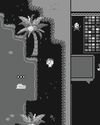
SLIDES RULE
Redeeming a hated puzzle mechanic with SLIDER
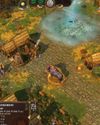
GODS AND MONSTERS
AGE OF MYTHOLOGY: RETOLD modernises a classic RTS with care

PHANTOM BLADE ZERO
Less Sekiro, more Wo Long: Fallen Dynasty

STARR-MAKING ROLE
Final Fantasy XVI's BEN STARR talks becoming a meme and dating summons
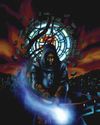
THIEF GOLD
Learning to forgive myself for knocking out every single guard.

HANDHELD GAMING PCs
In lieu of more powerful processors, handhelds are getting weirder
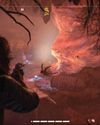
FAR FAR AWAY
STAR WARS OUTLAWS succeeds at the little things, but not much else shines
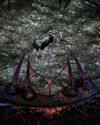
FINDING IMMORTALITY
Twenty-five years on, PLANESCAPE: TORMENT is still one of the most talked-about RPGs of all time. This is the story of how it was created as a ‘stay-busy’ project by a small team at Black Isle Studios